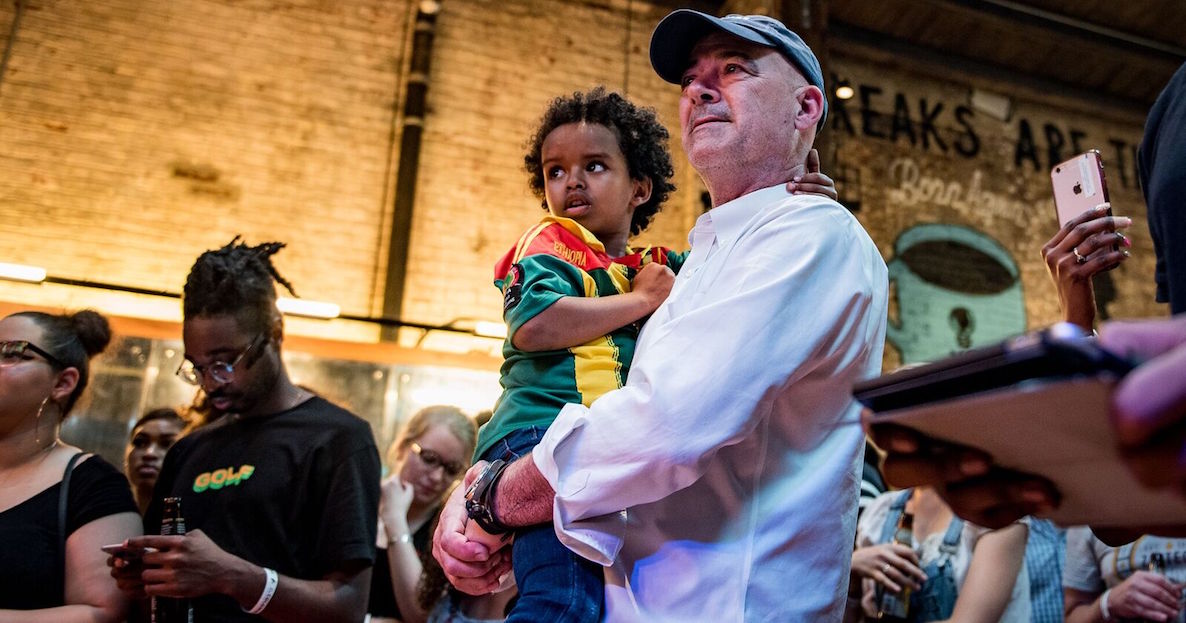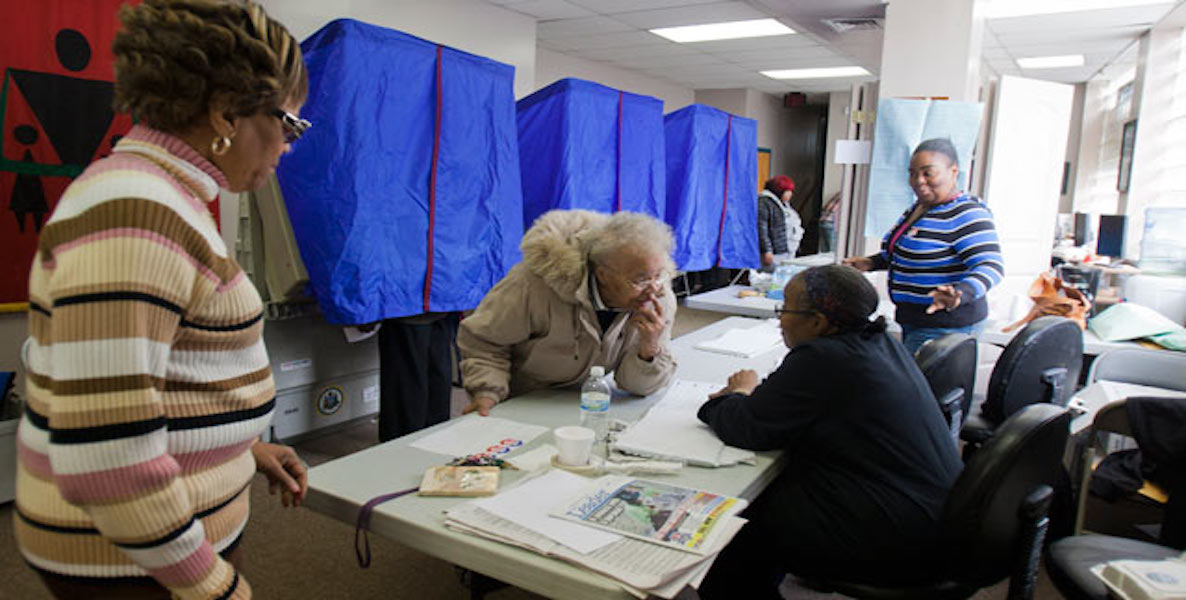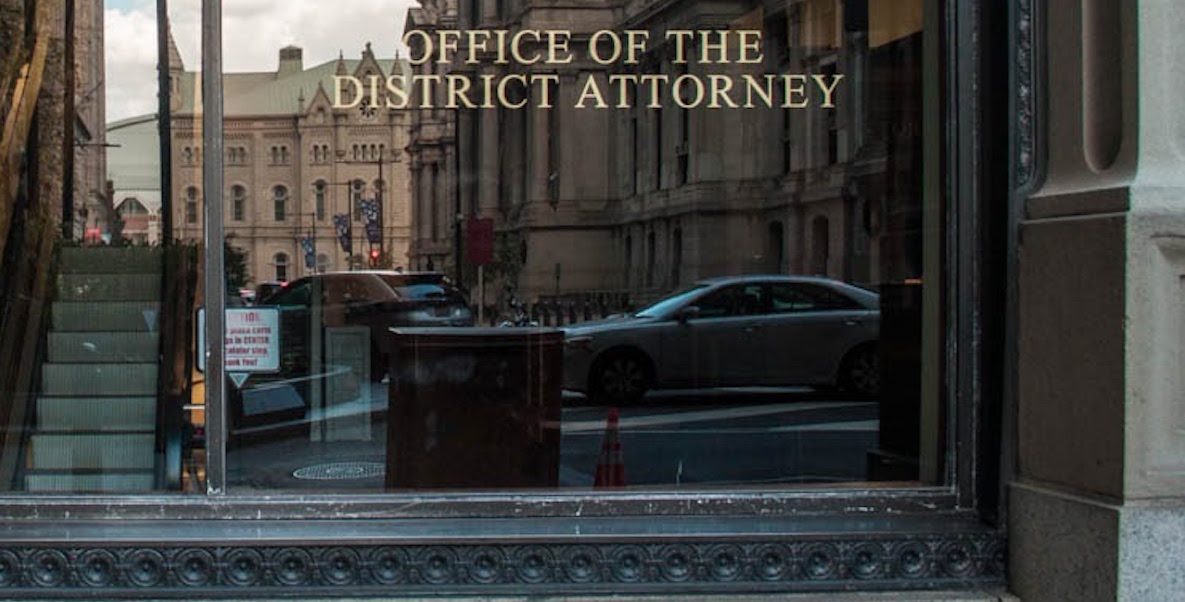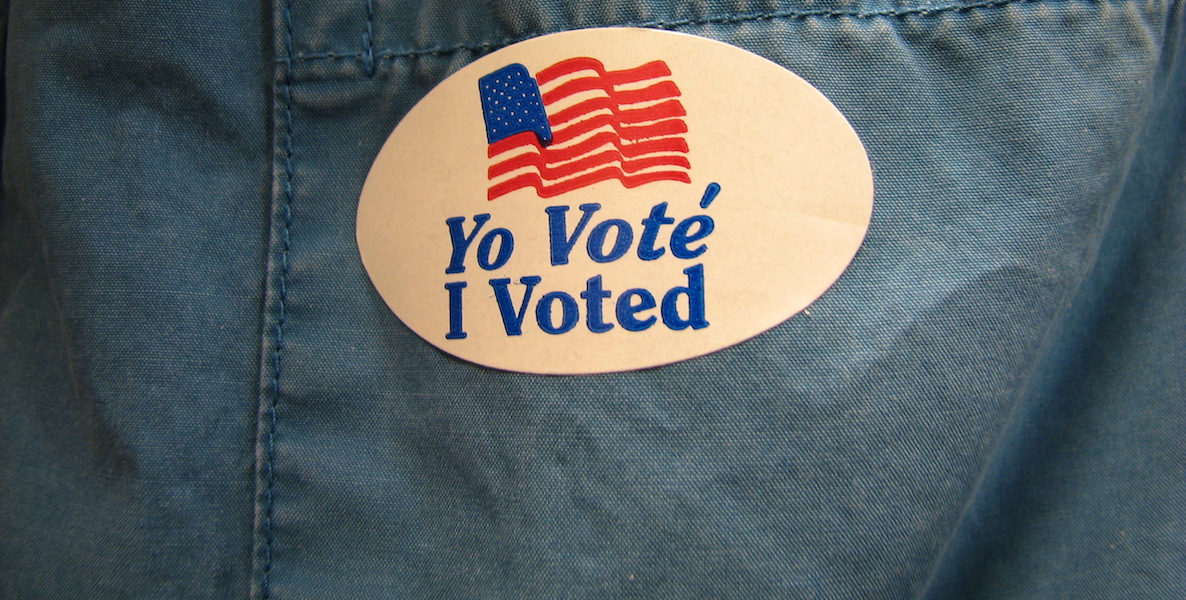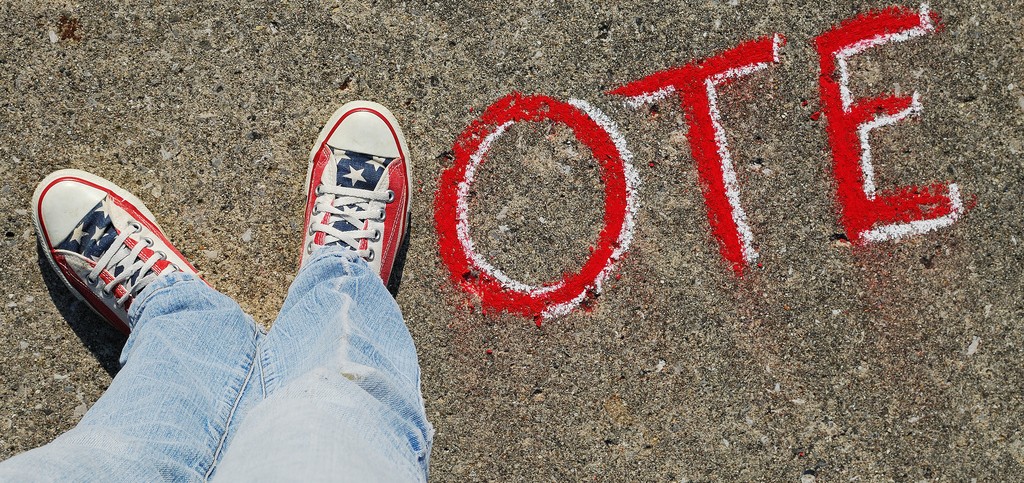November 6. November 6. November 6. November 6. November 6. November 6.
With much less coverage and campaign advertising than a Presidential season, the most important thing to know about the upcoming midterm election might be that it’s happening at all. This year’s General Election will take place on (you guessed it) November 6th. Mark your calendar, check your polling place, and make a plan to vote.
Turnout in 2014, the last PA midterm election, was the lowest since 1998. That speaks to a general midterm malaise across the state, but Philadelphia really took the prize for apathy that year. While statewide voter turnout was a drowsy 41.8 percent, turnout in Philly was a downright anemic 35 percent, ranking dead last among all counties.
You might chalk some of that up to “The Primary Effect.” In a city where voter registration heavily favors Democrats, midterm primaries can sometimes get competitive, as neighbors vie for the Democratic nomination. That can stir up voter interest and bump turnout in an otherwise quiet year, as witnessed in a few State House districts this spring. Now, many of those candidates are headed into the General Election unopposed, and that might leave some Philadelphia voters with the impression their job is done. Meanwhile, those voters could still have a voice in contested statewide races for U.S. Senator and Governor. If they cared to, that is. If history is any guide, most won’t.
Of course, we’ve had a few political surprises since 2014, and history may be no guide at all in the Trump era. Has the populist surge of 2016, or the alleged blue wave backlash, generated enough energy to break through the midterm doldrums? We’ll see. For now, why not concentrate on what you can do? Vote.
When are the polls open?
Polls are open from 7am to 8 m. Remember that you can get in line to vote before 7am, and you can vote as long as you were in line before 8pm, even if you don’t get into the actual voting booth until later. Also remember: Polling places change, so make sure you know where to go by checking with the state.
Why should I vote in this election?
You should always vote. Here are some reasons why.
Nothing is a lock in 2018. Polls are breaking hard for Democrats right now. Whatever your politics, there’s always a chance the weather, late-breaking news, or over confidence could change the equation for better or worse.
Your vote will get a Midterm Multiplier. Maybe turnout will smash previous records. More likely, you’ll be one of the 35 percent of registered Philly voters who clicks that big VOTE button. One vote will be worth much more as a proportion of the total, which means your voice will be that much louder. In some of the competitive State House races listed below, a few votes could make all the difference.
All caught up? Great. Here’s an overview of what you’ll see on your ballot and what it means:
Governor (Statewide)
Tom Wolf is the incumbent Democrat in this race. As Pennsylvania’s current executive leader and commander-in-chief, he has the power to veto or approve state laws coming out of the General Assembly, both houses of which are currently controlled by Republicans.
The Republican challenger, State Senator Scott Wagner, wants his job.
Paul Glover, a writer and former Temple adjunct professor from Philadelphia’s Germantown neighborhood, is representing the Green party.
Finally, there is a Libertarian challenger on the ballot. Ken Krawchuck, a native Philadelphian, is founder and President of a 25-year-old Information Technology consulting firm.
Wolf has been accused of playing it extremely safe during this election cycle, only agreeing to a single debate with Wagner. When that debate finally took place, it was dominated in strange fashion by celebrity host Alex Trebek, who only allowed the pair to squeeze in 20 minutes of collective response time between his diatribes and loquacious questions. Still, Wagner has done his part to stay in the headlines. He was recently featured in the New York Times for a colorful threat combining baseball, golf, and explicit violence.
Lt. Governor (Statewide)
The Lieutenant Governor is a bit like the vice president of the state, except that the role is directly and independently elected by popular vote. The Lt. Governor presides over the Senate, but otherwise the duties are “as assigned” by the governor. Current Lt. Governor, Democrat Mike Stack, has been under an investigation by the state attorney general for mistreatment of his staff and police detail. Stack became a lame duck in May when Braddock Mayor John Fetterman defeated him to gain the Democratic nomination.
Because this role is independently-elected, these candidates aren’t exactly “running mates,” though a few gubernatorial aspirants have styled them as such. Technically, it is possible for voters to vote across party lines.
Democrat: John Fetterman, Mayor of Braddock, Pennsylvania
Republican: Jeff Bartos, small businessman in residential and commercial real estate
Green: Jocolyn Bowser-Bostick, a part-time pharmacy technician and chair of the Green Party of Delaware County
Libertarian: Kathleen Smith, retired retail merchant and manager of the Libertarian Party in Washington County
U.S. Senate (Statewide)
Another statewide race, this one for the upper house of Congress. Join your Pennsylvania brethren and sistren as they vote to elect Bob Casey to a third term in Washington, D.C., or send one of three challengers to the Senate in his place.
Democrat: Robert Casey, Jr., two-term incumbent Senator from Pennsylvania
Republican: Lou Barletta, former Mayor of Hazleton, current Congressman in PA’s 11th District
Green: Neal Gale, energy affordability program manager at Honeywell
Libertarian: Dale Kerns, project manager at the Tri-M Group
U.S. House of Representatives (3 Philadelphia Districts)
Philly is home to three recently redesigned Congressional Districts. The new maps went into play just ahead of the spring primary, resulting in a packed field of Democratic challengers in the new 5th district. Republican candidates, each of whom ran unopposed in the spring primary, now face their first real challenge.
2nd District
While the fault lines of his old Congressional district have shifted a bit, Democrat Brendan Boyle is essentially entering this race as the incumbent in the new 2nd, which runs North of Race and East of Broad. David Torres is the Republican candidate.
3rd District
Dwight Evans is the Democratic incumbent in the new 3rd District, an incredibly diverse swath which includes the majority of Center City, runs to West Philly, and then stretches across Northwest Philly from Broad to Manayunk. He is challenged by Republican Bryan Lieb.
5th District
This district covers what had previously been the heavily-gerrymandered, moose-antler-shaped 7th District. The spring primary in the PA 5th was a doozy for the Democrats, with no fewer than ten names competing for nomination. When the smoke cleared, attorney Mary Gay Scanlon was the winner. Meanwhile, as the Democratic primary was heating up, incumbent Pat Meehan (R) was embroiled in scandal. News sources reported Meehan had payed $39,000 out of campaign coffers to settle a sexual harassment claim put forth by a former aide. In April, Meehan promised to repay the funds, and announced he would not be seeking re-election. Senior Deputy PA Attorney General Pearl Kim has replaced him as the Republican candidate. Whatever the outcome, this district is guaranteed to send a woman to DC. That’s notable, because no women have represented Pennsylvania in Congress since 2014.
PA Senate (3 even-numbered Districts)
The PA Senate is the upper house of Pennsylvania’s legislative body, and the final stop for bills created in the house. Like the US Senate, it is smaller than the lower house. Unlike the US Senate, which reserves two seats per state, State Senators all represent proportional districts of around 254,000 residents. Republicans currently hold a 34-16 majority in the PA Senate, enough to override a governor’s veto with a two-thirds majority without any help from Democrats.
State Senators are elected to four-year terms with odd and even districts rotating election every four years. This is an even year, so voters in odd districts will not see this option on their ballots.
Of the even districts, District 4 is the only competitive PA Senate race overlapping Philadelphia’s boundaries. Arthur Haywood, a Democrat, is the incumbent in this race, seeking his second term in Harrisburg. Ron Holt is the Republican challenger.
Running unopposed are political fixtures Anthony Williams (D), in PA District 8, and Christine Tartaglione (D), in PA District 2.
PA General Assembly (26 Districts)
State Representatives are all elected on even numbered years to two-year terms. Whereas US Representatives each serve about 707,000 people, State Reps serve small districts of about 62,500 residents, making them too small for most media market advertising. The size makes these races much more grassroots, even personal. If you know the candidates in your area, it’s likely through door-knocking, house parties, and community outreach rather than radio and TV.
After a few spirited spring primary races, most voters will see a single uncontested Democrat on the ballot in the general election. However, that’s not the case across the board. A few districts are experiencing active, competitive, two-party races this time around. This is especially true in the Northeast, and in districts that share turf with a neighboring county like Montgomery.
District 152
Democrat: Daryl Boling
Republican: Thomas Murt (incumbent)
Choice Coverage: Stay informed: A complete guide to Philly’s contested state races in the 2018 election via Billy Penn
District 170
Democrat: Mike Doyle
Republican: Martina White (incumbent)
Choice Coverage: GOP pulls out handcuffs in Northeast Philly attack mailer, despite lack of ‘blue wave’ via Billy Penn
District 177
Democrat: Joseph Hohenstein
Republican: Patty-Pat Kozlowski
Choice Coverage: ‘Fat bastard’ vs. ‘completely unhinged’: Politics divides old friends in River Wards via Billy Penn
District 181
Democrat: Malcolm Kenyatta
Republican: Milton T. Street (yes, that Milton Street)
Choice Coverage: Pa. Statehouse likely getting first openly gay lawmaker of color via WHYY
District 182
Democrat: Brian Sims (Incumbent)
Independent: James McDevitt
Choice Coverage: A Gay “Berniecrat Socialist” Announces Surprise Run Against Brian Sims via Philly Mag
District 194
Democrat: Pamela A. DeLissio
Republican: Sean P. Stevens
Libertarian: Matt Baltsar
Ballot Questions
Getting a city charter amendment on the ballot requires a two-thirds vote of City Councilmembers. Once they are on the ballot, it takes just a simple majority (i.e. greater than 50 percent) of “yes” votes by the public for each amendment to become law.
Philadelphia County Bond Question
Should the City of Philadelphia borrow ONE HUNDRED EIGHTY-ONE MILLION DOLLARS ($181,000,000.00) to be spent for and toward capital purposes as follows: Transit; Streets and Sanitation; Municipal Buildings; Parks, Recreation and Museums; and Economic and Community Development? Yes / No
Philadelphia, and other cities, regularly sell municipal bonds as a way of borrowing ahead for capital improvements. Since the Charter reform of the 1950’s, voters must always approve the sale of municipal bonds, hence this question. According to the ballot bill City Council passed in September, this is their proposed breakdown for the funds:
- $5,171,000: Transit
- $36,932,000: Streets and sanitation
- $97,741,000: Municipal buildings
- $26,591,000: Parks, recreation, and museums
- $14,565,000: Economic and community development
Bond questions are not inherently good or bad. Over the years, municipal bonds have helped fund capital development and upkeep, distributing the burden over a number of years so today’s residents aren’t called on to foot the entire bill for long term improvements. And while the number may seem eye-popping at first, $181 million is only a fraction of the City’s swollen $4.7 billion-dollar budget. Compare it to the $425,806 million increase in salaries, benefits, and labor since Mayor Kenney took office in 2016. Or the more than $600,00 the City pays annually toward the pension fund, with only a breathtaking $6 billion gap to show for it.
Still, each approved bond measure does add to the City’s debt. This is the eighth such measure in as many years, but Council claims there is no plan B to fun this work should the measure not pass. Fiscally concerned voters will have to consider for themselves whether this is their hill to die, on or simply a molehill.



